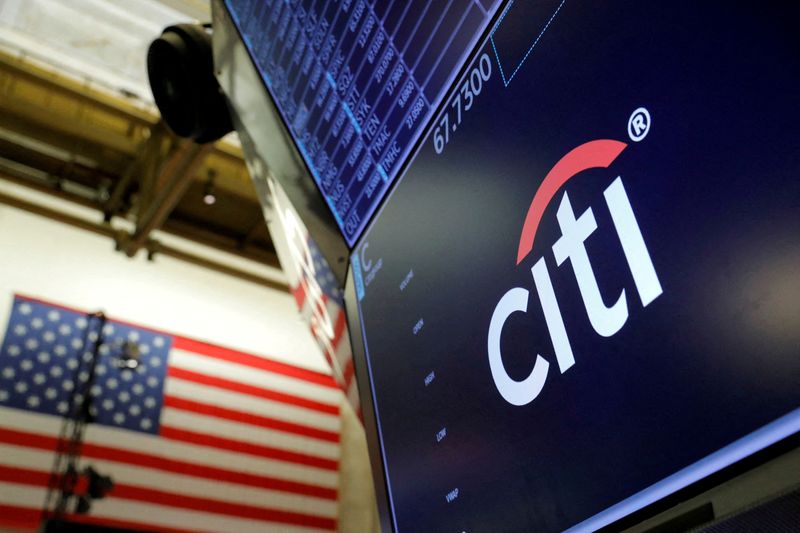By Isla Binnie
NEW YORK (Reuters) -West Virginia has added Citi, HSBC and two other financial firms to a list of institutions that may be barred from some state business due to their energy finance policies, prompting three of them to assert their commitment to that industry.
The move was the latest flare-up in a bubbling dispute between Republican officials and Wall Street firms over use of environmental, social and governance (ESG) factors in banking and business.
West Virginia, a major energy-producing state, created the list in 2002, placing five firms on it at the time.
On Monday, West Virginia Treasurer Riley Moore also added TD Bank and the Northern Trust (NASDAQ:NTRS) Co to the list.
Moore's office says the list is for firms that "have publicly stated they will refuse, terminate or limit doing business with coal, oil or natural gas companies without a reasonable business purpose".
Citi said it was disappointed by the designation.
"Citi is not engaged in a boycott of energy companies as evidenced by the fact that we continue to lend to these companies and have substantial credit exposure to the industry," it said in a statement.
A Northern Trust spokesperson said the asset and wealth manager "does not restrict or prohibit investment in fossil fuel-based energy companies." The spokesperson said Northern Trust had around $52 billion in investment exposure to companies in the traditional energy sector as of February 2024.
HSBC seeks "to work with - not boycott - energy companies," a U.S.-based spokesperson said via email. The bank expects to continue corporate lending and capital markets transaction support to "energy-based customers," the spokesperson continued.

TD Bank did not respond to a request for comment.
Financial firms also face pressure from the other side of the ESG debate, with environmental activists and investors pushing them to stop financing new projects in areas like oil and gas.